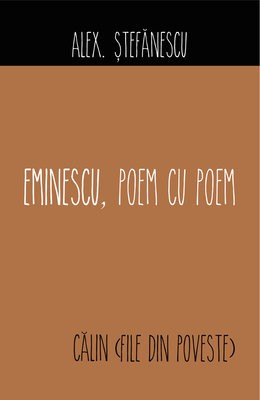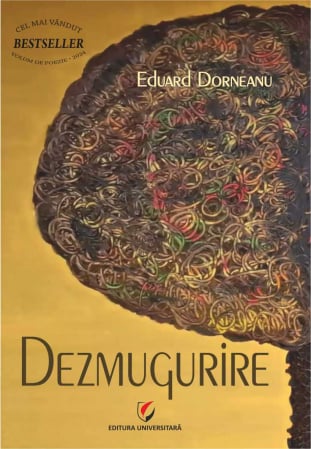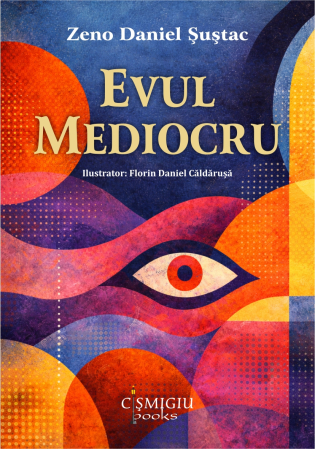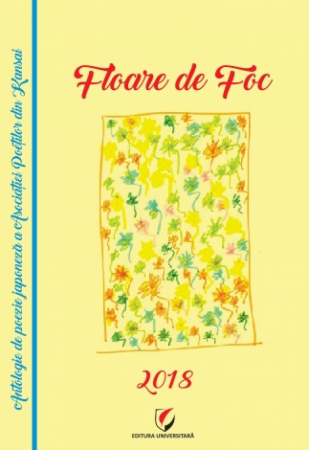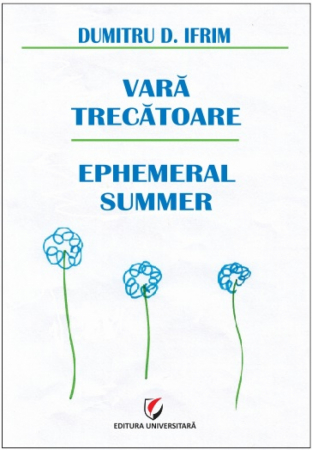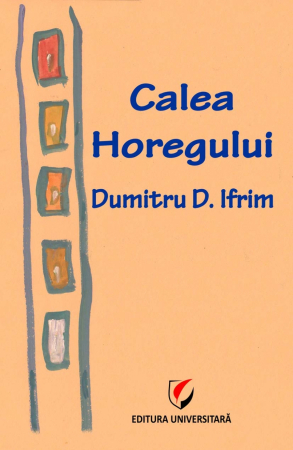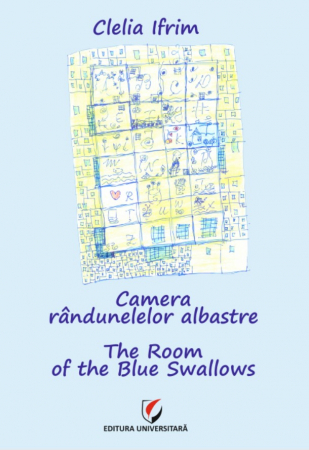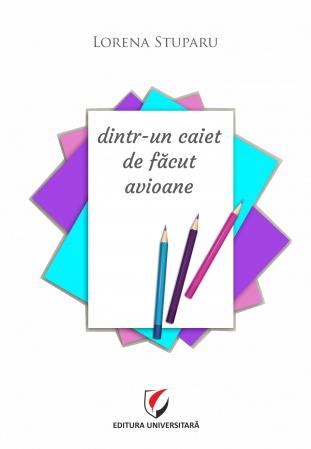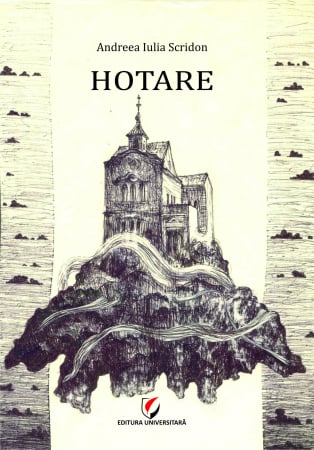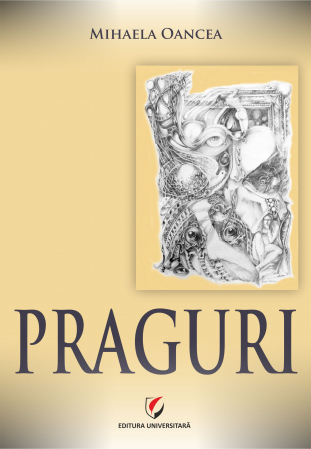Manuscript proposals: [email protected] / 0745 204 115 //// Tracking orders Individuals / Sales: 0745 200 357 / Orders Legal entities: 0721 722 783
Publisher: Editura Universitară
Author: Tatiana Stoicescu
ISBN: 978-606-28-1284-3
DOI: https://doi.org/10.5682/9786062812843
Publisher year: 2021
Edition: I
Pages: 106
Product Code:
9786062812843
Do you need help?
0745 200 357
- Description
- Download (1)
- Authors
- Content
- More details
- Reviews (0)
"Aporia" is a concept inherited from elina: ἡ ἀπορία, ας [he aporía, as], late: ἡ διαπορία, ας [he diaporía, as], "finding the way out of a difficulty, obstacle, confusion, complication , confusion, embarrassment ”, deriving from the verbs ἀπορέω, ῶ, διαπορέω, ῶ [aporéō, ȭ, diaporéō, ȭ],“ to ignore how to cross a weight, to find oneself in confusion, to hesitate, not to know ”, taken over of philosophy to define a difficulty in solving a problem, an insoluble contradiction in a reasoning.
-
Aporie
Download
TATIANA STOICESCU
APORIE / 5
DISAGREE / 9
CEMETERIES / 10
DIMENSION / 11
ARCHER / 12
LURE / 13
CONFUSION / 14
VANITY / 15
LIFE AND DEATH / 16
THE KISS / 18
INCURABLE / 20
DELAY / 21
IF WE UNDERSTAND ... / 23
NANOPHILOSOPHY / 24
PHOTOSYNTHESIS / 25
REFERENCE / 26
EXERCISE / 27
MARKING / 28
MAYBE / 29
AEGEAN CURRENCY / 30
THE CROSSROADS / 32
LIVING / 33
DUALITY / 34
HYPOTHESIS / 35
HUG / 36
MORB / 37
SUSPEND / 38
ALSO / 39
ADHESION / 40
EDIT / 41
SPECIES / 42
FURTHER / 43
GRADUATED / 44
SURREALISM / 45
ASPIRATION / 46
INSTABLE / 47
MONA LISA / 48
BIRCH / 49
FORM / 50
AT NIGHT / 51
VISITORS / 52
AFTER ME / 53
CENTER / 54
SNOWMAN / 55
APORIE I / 56
FANTASY / 57
NOT CATCHED / 58
ALIKE / 59
DISAPPOINTMENT / 61
HOPE / 62
BALM / 63
LAGOON / 64
IN ALL / 65
APORIE II / 66
STORY / 67
PANDEMIC / 68
REPETITIVITY / 70
TOUCHES / 71
SUMMER / 72
ALIENATION / 73
CHILDHOOD / 74
BUNGALOW / 75
JAZZ / 76
APORIE III / 77
WITNESSES / 78
LIKE ME / 79
SELF / 80
CONSTELLATIONS / 81
YURI KONDRATYUK'S DREAM / 82
ASSUMPTION / 83
POSSIBLE / 84
SAILORS / 85
LIKE ME / 86
ROCHE LIMIT / 87
TRANSFER / 88
FUTURE / 89
MAREICA RACE / 90
FAITH / 91
RETURN / 92
MEMORY / 93
ARTA / 94
REFERENTIAL / 96
BALANCE / 97
APORIE IV / 98
CIRCUMSTANTA / 99
AFTER MACI / 100
ONE MORE DATE / 102
DISAGREE / 9
CEMETERIES / 10
DIMENSION / 11
ARCHER / 12
LURE / 13
CONFUSION / 14
VANITY / 15
LIFE AND DEATH / 16
THE KISS / 18
INCURABLE / 20
DELAY / 21
IF WE UNDERSTAND ... / 23
NANOPHILOSOPHY / 24
PHOTOSYNTHESIS / 25
REFERENCE / 26
EXERCISE / 27
MARKING / 28
MAYBE / 29
AEGEAN CURRENCY / 30
THE CROSSROADS / 32
LIVING / 33
DUALITY / 34
HYPOTHESIS / 35
HUG / 36
MORB / 37
SUSPEND / 38
ALSO / 39
ADHESION / 40
EDIT / 41
SPECIES / 42
FURTHER / 43
GRADUATED / 44
SURREALISM / 45
ASPIRATION / 46
INSTABLE / 47
MONA LISA / 48
BIRCH / 49
FORM / 50
AT NIGHT / 51
VISITORS / 52
AFTER ME / 53
CENTER / 54
SNOWMAN / 55
APORIE I / 56
FANTASY / 57
NOT CATCHED / 58
ALIKE / 59
DISAPPOINTMENT / 61
HOPE / 62
BALM / 63
LAGOON / 64
IN ALL / 65
APORIE II / 66
STORY / 67
PANDEMIC / 68
REPETITIVITY / 70
TOUCHES / 71
SUMMER / 72
ALIENATION / 73
CHILDHOOD / 74
BUNGALOW / 75
JAZZ / 76
APORIE III / 77
WITNESSES / 78
LIKE ME / 79
SELF / 80
CONSTELLATIONS / 81
YURI KONDRATYUK'S DREAM / 82
ASSUMPTION / 83
POSSIBLE / 84
SAILORS / 85
LIKE ME / 86
ROCHE LIMIT / 87
TRANSFER / 88
FUTURE / 89
MAREICA RACE / 90
FAITH / 91
RETURN / 92
MEMORY / 93
ARTA / 94
REFERENTIAL / 96
BALANCE / 97
APORIE IV / 98
CIRCUMSTANTA / 99
AFTER MACI / 100
ONE MORE DATE / 102
"Aporia" is a concept inherited from elina: ἡ ἀπορία, ας [he aporía, as], late: ἡ διαπορία, ας [he diaporía, as], "finding the way out of a difficulty, obstacle, confusion, complication , confusion, embarrassment ”, deriving from the verbs ἀπορέω, ῶ, διαπορέω, ῶ [aporéō, ȭ, diaporéō, ȭ],“ to ignore how to cross a weight, to find oneself in confusion, to hesitate, not to know ”, taken over of philosophy to define a difficulty in solving a problem, an insoluble contradiction in a reasoning.
For Aristotle, it is a question that casts doubt on the reader or listener while pushing him to decide between two statements: ἀπορία, διαπορία, meaning "contradiction, confusion."
Aporetical thinking may seek to overcome contradictions, as in Aristotle; in that case it is dialectical, distinguishing itself from skepticism, agnosticism and sophistry.
Explanation of terms:
- dialectics reconsiders all points of view to allow a synthesis;
- skepticism is limited to not tracing as long as the conditions for doing so are not met;
- agnosticism states the impossibility to decide;
- sophistry is a model of thinking based essentially on eloquence, in order to seduce the masses and this for the benefit of a minority or to send a message inappropriate to reality (intentional or not), is a false reasoning, a rhetorical procedure, an argument whose logic is deceptive;
- aporia is limited to finding only what it is (example: existentialism).
Socrates uses aporetic reasoning for example in the Apology of Socrates (1) and in Menon (2).
(1) The Apology of Socrates (Πλάτωνος Ἀπολογία Σωκράτους [Plátōnos Apologhía Sōkrátus]) is a Socratic dialogue of Plato transcribing the trial of Socrates, which took place in 399 BC and the arguments in his defense.
(2) Menon (Μένων [Ménōn]) is another dialogue written by Plato. Its subject is stated by the author in the form of a question: Can virtue be learned? To this question asked by Menon, Socrates answers that he has not yet known a man who knows what virtue is in itself. Together, they try to find the definition of virtue, its nature, in order to know if it can be transmitted to someone through education or not and how it is obtained. First of all, the issue examined is that of the essence of excellence. However, after many futile attempts to answer, the two examine a more general question: whether virtue can be known and how it is? The question of virtue is extended in a third time, with the examination of the question initially posed by Menon, which ends once again with an aporia, and Menon begins to doubt that there are virtuous people, people of excellence. Socrates imagines a second hypothesis: not only science (teaching) can guide the right action, there is also the right opinion.
The current meaning of the aporia is stronger and refers to any insoluble and inevitable problem, expressed differently, it can be said that it defines a stalemate in a reasoning deriving from a logic.
But the term aporia also applies to mathematical and physical paradoxes. The most famous, unresolved for centuries are those launched by Zeno of Elea (Ζήνων ὁ Ἐλεάτης [Zḗnōn ho Eleátes]) - to support the doctrine of Parmenides, according to which any evidence of the senses is deceptive and movement impossible -, such as: Plurality of sizes (a), Numerical plurality (b), Plurality of places (c), Achilles and turtle (which it cannot catch up with), The paradox of the cob if a wheat cob makes noise falling to the ground, as a single grain of wheat, what noise does one tenth of a grain make?), that of the Dichotomy or the Arrow that never reaches its target remaining suspended in flight and many others like that ...
(a) If plurality exists, it must be at the same time infinitely small and infinitely large: infinitely small because its parts must be indivisible and therefore without size and infinitely large, because any part will be separated one from one to another, a third, the last of the first and the second of a fourth and a fifth and so on infinitely.
(b) If plurality exists, it must be both finite and infinite in number: numerically finite, because there are exactly as many things as there are, no more and no less, and numerically infinite, because two things are separated by one another. the third, and this one by the first by a fourth and by the second, by a fifth and so on to infinity.
(c) If all that is, is in one place, this place must be in another place, and so on indefinitely.
Dragomir Costineanu
(prof. dr. univ.)
For Aristotle, it is a question that casts doubt on the reader or listener while pushing him to decide between two statements: ἀπορία, διαπορία, meaning "contradiction, confusion."
Aporetical thinking may seek to overcome contradictions, as in Aristotle; in that case it is dialectical, distinguishing itself from skepticism, agnosticism and sophistry.
Explanation of terms:
- dialectics reconsiders all points of view to allow a synthesis;
- skepticism is limited to not tracing as long as the conditions for doing so are not met;
- agnosticism states the impossibility to decide;
- sophistry is a model of thinking based essentially on eloquence, in order to seduce the masses and this for the benefit of a minority or to send a message inappropriate to reality (intentional or not), is a false reasoning, a rhetorical procedure, an argument whose logic is deceptive;
- aporia is limited to finding only what it is (example: existentialism).
Socrates uses aporetic reasoning for example in the Apology of Socrates (1) and in Menon (2).
(1) The Apology of Socrates (Πλάτωνος Ἀπολογία Σωκράτους [Plátōnos Apologhía Sōkrátus]) is a Socratic dialogue of Plato transcribing the trial of Socrates, which took place in 399 BC and the arguments in his defense.
(2) Menon (Μένων [Ménōn]) is another dialogue written by Plato. Its subject is stated by the author in the form of a question: Can virtue be learned? To this question asked by Menon, Socrates answers that he has not yet known a man who knows what virtue is in itself. Together, they try to find the definition of virtue, its nature, in order to know if it can be transmitted to someone through education or not and how it is obtained. First of all, the issue examined is that of the essence of excellence. However, after many futile attempts to answer, the two examine a more general question: whether virtue can be known and how it is? The question of virtue is extended in a third time, with the examination of the question initially posed by Menon, which ends once again with an aporia, and Menon begins to doubt that there are virtuous people, people of excellence. Socrates imagines a second hypothesis: not only science (teaching) can guide the right action, there is also the right opinion.
The current meaning of the aporia is stronger and refers to any insoluble and inevitable problem, expressed differently, it can be said that it defines a stalemate in a reasoning deriving from a logic.
But the term aporia also applies to mathematical and physical paradoxes. The most famous, unresolved for centuries are those launched by Zeno of Elea (Ζήνων ὁ Ἐλεάτης [Zḗnōn ho Eleátes]) - to support the doctrine of Parmenides, according to which any evidence of the senses is deceptive and movement impossible -, such as: Plurality of sizes (a), Numerical plurality (b), Plurality of places (c), Achilles and turtle (which it cannot catch up with), The paradox of the cob if a wheat cob makes noise falling to the ground, as a single grain of wheat, what noise does one tenth of a grain make?), that of the Dichotomy or the Arrow that never reaches its target remaining suspended in flight and many others like that ...
(a) If plurality exists, it must be at the same time infinitely small and infinitely large: infinitely small because its parts must be indivisible and therefore without size and infinitely large, because any part will be separated one from one to another, a third, the last of the first and the second of a fourth and a fifth and so on infinitely.
(b) If plurality exists, it must be both finite and infinite in number: numerically finite, because there are exactly as many things as there are, no more and no less, and numerically infinite, because two things are separated by one another. the third, and this one by the first by a fourth and by the second, by a fifth and so on to infinity.
(c) If all that is, is in one place, this place must be in another place, and so on indefinitely.
Dragomir Costineanu
(prof. dr. univ.)
If you want to express your opinion about this product you can add a review.
write a review

6359.png)
![Aporia - Tatiana Stoicescu [1] Aporia - Tatiana Stoicescu [1]](https://gomagcdn.ro/domains/editurauniversitara.ro/files/product/large/stoicescu-tatiana_aporie_bt-3208-6858.jpg)

